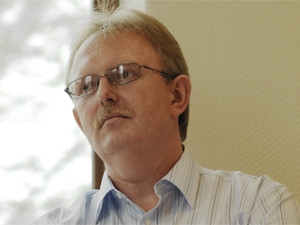
Shanghai Zendai's mammoth project to build a smart city on Johannesburg's East Rand - that will vie with Johannesburg and Sandton as a business hub - could see millions pumped into the local economy.
However, commentators are sceptical of its long-term benefit to the ICT sector.
The project will be developed over the next 15 to 20 years, on 1 600 hectares of land - around the same size as the Sandton business district. The Modderfontein land was sold by explosives manufacturer AECI last year for R1.6 billion, after 117 years of ownership.
On completion, it will be a smart city, home to 30 000 families and various industries, and is set to create 200 000 jobs.
IDC analyst Mark Walker notes the project, a great idea, should generally contribute to the local economy. He adds it will be in competition with Kenya, which has similar plans for a smart city outside Nairobi - 'Silicon Savannah' - while comparable plans are afoot in Ghana.
Walker adds: "Chinese companies investing in Africa tend to have a good understanding of the requirements of emerging markets. They know the importance of affordability, relevance and ease of use, and this is what a lot of multi-nationals don't seem to get."
Construction on the project has yet to start, as the first tranche of land was only transferred last month. The Hong Kong-listed developer has signed a strategic partnership with PCCW Global to provide the bulk of the smart city infrastructure, although details are currently scarce.
Zoning in
This week, Shanghai Zendai and PCCW announced they had inked a strategic collaboration that will see PCCW provide technology and telecommunications services, and skills and experience to assist in Zendai's development of the smart city. The city, which will be created on the back of one of the largest bulk urban property transactions in SA, will have nine functional zones, including a business district, conference centre and light industry park.

PCCW, as the venture's strategic technology partner, will provide Zendai with services that include systems development and solutions integration, application development and management, telecommunications and IT services, cloud computing services and e-commerce solutions.
However, the functionality that will be available to residents and businesses has yet to be worked out, as does PCCW's exact role.
Mike van den Bergh, PCCW Global's MD of its HKT Global Development Services unit, says the company is "excited" at being a part of what is set to be the biggest business hub in SA. He adds the company's experience in Hong Kong - with its fibre to the home network - gives it the technical know-how to handle the deal.
Van den Bergh cannot yet provide details around Internet speeds, or timelines, saying these will be determined by Zendai.
Historical issues
Walker notes a smart city would be beneficial on paper, but would need strong support from government to be successful. "If you look at Dubai's Internet City, they had huge political and government backing, and they got technology companies to invest heavily in the project. They made it attractive for companies to be in the city," he says.
Based on previous ICT projects in SA, industry veteran Adrian Schofield notes Chinese investment typically goes into Chinese companies, which bring their skills with them, and then take them home again.
"The Chinese are not known for investing out of the goodness of their hearts; they do so because it is good for them."
Skills transfer could prove to be a big challenge, says Walker, as technology developments focus on automation and replication. "Many companies fly in personnel from overseas to get things running and after that the main concern is maintenance and support of infrastructure. A lot of the time it can be done from anywhere in the world."
Chinese companies based in SA have come under fire for bringing in foreign nationals to complete contracts, instead of transferring skills to local workers. The Congress of South African Trade Unions has said local workers should be employed, and charged that Chinese companies are exploiting Chinese workers by paying them a lower wage.
Share